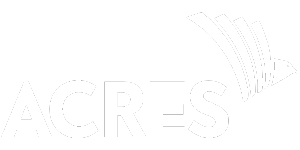Final report published by Fergal Monaghan and Dr. Caroline sullivan
Publication of the Hen Harrier Project EIP (2017–2023) Final Report

Hen Harrier Project 2017-2023 | Picture shows a pair of Hen Harrier Chicks
The Hen Harrier Project Ltd is pleased to announce the publication of the final report for the Hen Harrier Project European Innovation Partnership (EIP), which operated between 2017 and 2023. This groundbreaking programme, funded with €23.59 million under the Common Agricultural Policy (CAP), was the largest EIP in Europe at the time and provided significant financial rewards to participating farmers while delivering crucial environmental benefits.
“The Hen Harrier Project EIP has demonstrated that when farmers are properly supported and incentivised, they can deliver meaningful conservation outcomes. By placing farmers at the centre of the programme and rewarding them for measurable improvements, we have developed a model that benefits both nature and rural communities. We hope that the lessons from this initiative will shape future policies and funding mechanisms for biodiversity and land management.” – Fergal Monaghan, Project Manager of the Hen Harrier Project Ltd
Through this initiative, over 1,600 farmers across six Special Protection Areas (SPAs) engaged in conservation-focused land management practices that enhanced the habitat for the Hen Harrier and other key species. The project pioneered a results-based agri-environment scheme, ensuring that farmers were rewarded for tangible improvements in habitat quality. Over the course of the programme, a total of €20 million in habitat and supporting action payments were made to farmers, with an additional €3.5 million allocated to Community Actions, Field trials of new actions, monitoring, and project administration.
“This programme has been transformative, not just for the Hen Harrier but for the wider landscape. The combination of scientific monitoring, farmer engagement, and financial incentives has proven to be a powerful tool for conservation. We are grateful to all participating farmers, advisors, and stakeholders who made this project a success. The findings from this final report offer a pathway forward for balancing agricultural production with environmental sustainability.” added Dr. Caroline Sullivan, Deputy Project Manager and Ecology Specialist
One of the standout features of the programme was the Hen Harrier Bonus, which incentivised habitat improvements and successful breeding of the Hen Harrier. This results-driven approach demonstrated that conservation and farming could work hand in hand, providing a viable model for future agri-environment schemes in Ireland and across Europe.
Key Achievements:
- Over 46,000 hectares of land managed to enhance biodiversity.
- More than 1,600 farmers participated in the programme, demonstrating strong engagement and the potential scalability of the Results Based Approach.
- Over 4,000 conservation actions implemented, including fencing, water infrastructure, and habitat improvements.
- A measurable increase in habitat quality, benefiting not just Hen Harriers but a wide range of wildlife.
